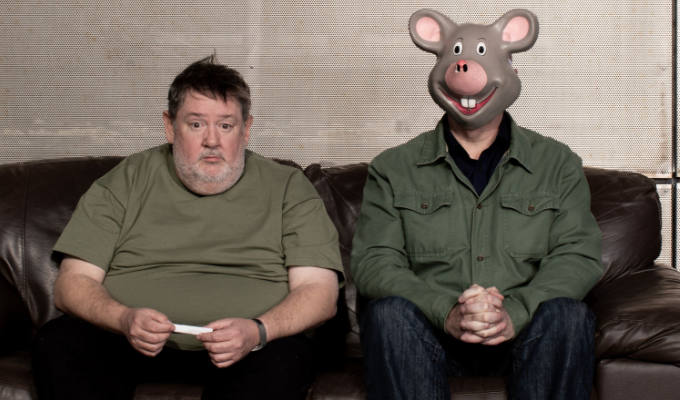Good sense of tumour...
Tig Notaro Live reviewed by Steve Bennett
Tig Notaro walked on stage at the Los Angeles club Largo in August, and as the introductory applause rang around the venue, spoke over it: ‘Hello, good evening, hello. I have cancer. How are you? Everybody having a good time? I have cancer. Just diagnosed with cancer.’
The following 30 minutes have just been released as a $5 download, thanks to Louis CK – who happened to be in the room at the time and has mastered the distribution of self-published comedy.
Tig Notaro Live is not the funniest stand-up routine you’ll ever hear, but it is one of the most fascinating, and showing the places comedy can take both a performer and the audience.
The material is still red-raw; the diagnosis and its implications still rattling around the 41-year-old’s head. She had some intention of coming out and getting on with her regular job, sharing with the room her silly observations about a bee on the highway. But in reality, that was never going to happen, her brain isn’t in that place.
All the jokes I’ve written, I can’t bring myself to talk about,’ she says. She has to speak about what’s on her mind, it’s the curse or gift of the stand-up, even if it’s clearly not an obvious catalyst for laughter. She evokes the familiar equation that comedy = tragedy + time, but confesses: ‘I am just at tragedy right now in the equation. It’s very personal.’
The room doesn’t know how to react; and Notaro doesn’t know how to cope with their uncertainty. Nervous laughs are the norm, but sometimes she tells people off for chuckling too much – this stuff isn’t funny! – or for not laughing enough.
When there’s obvious concern in the room, she says: ‘Guys, relax, everything’s fine,’ but she doesn’t seem that convinced of it herself. She reminds them: ‘I have cancer,’ and the uncertain atmosphere returns. People don’t know what to laugh at – and she doesn’t know what she WANTS them to laugh at; she just knows she has to talk about this stuff. Yet, it’s strangely not that awkward. The crowd appreciate the naked honesty of the situation, and give her latitude to talk.
The big C isn’t the only pall over the night; as Notaro relates the catalogue of misery that has befallen her in the weeks leading up to the devastating diagnosis. She thinks God is playing a sort of bad news buckaroo with her; seeing how much suffering can be heaped on one woman’s shoulders.
She was hospitalised with pneumonia, then contracted a C.Diff infection that ate away at her digestive tract. Then her mum died (‘...and tragically, too’). Then her relationship broke up. She’d like to get out there and start dating again, but the only thing she can see her lonely hearts ad saying is: ‘I have cancer.’ The only thing she can see in her life is cancer. Is there even any point in buying food?
Amid all this despondency, laughter can, perversely, seem like the only sane reaction; and as the set goes on Notaro starts to identify the humour in the situation, such as the questionnaire the hospital sent to her dead mum asking her to rate her care (timely, since a similar idea is being proposed for the NHS).
Other comics have made routines about their cancer before, but the difference here is the almost infinitesimally small gap between reality and the stage. Notaro hasn’t had the time yet to work out just where the mordant wit lies, but she’s starting to have a stab; finding thigns that are genuinely funny in the experience. In the rawness of the performance, you can feel her trying to figure it out, just like she’s trying to figure out this whole life-changing diagnosis.
The dynamic is revealing, making this a must for every student of comedy who wants to know what the textbooks can’t teach. In telling the room everything’s going to be OK, she starts to believe it herself. There’s a palpable change in her attitude over the course of the set, as if she’s been invigorated by the support of the audience. Dr Theatre is doing his job.
At one point, late on, she worries that she’s spoiled the night for people who had come out looking for simple laughs: ‘What if I transitioned right now into silly jokes,’ she asks. ‘No!’ comes the empathic reply from the room, and the cheers build, heartwarmingly.
Quite right, too. That bee joke was rubbish.
- Tig Notaro Live is available as a download for $5 here.
Published: 16 Oct 2012






